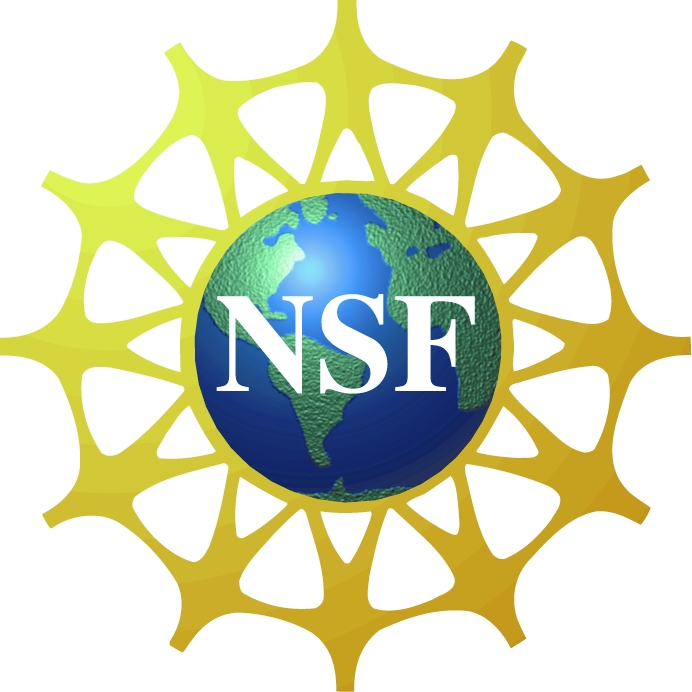Difference between revisions of "Main Page"
| Line 10: | Line 10: | ||
== What's New == | == What's New == | ||
| − | |||
| − | + | New Steering Committee members were voted in during the GEM Workshop: Allison Jaynes (Vice Chair), Lynn Wilson (SWMI RAC), Kareem Sorathia (GSM), and Erika Hathaway (Student Representative). | |
| − | |||
== GEM Community Knowledge Base == | == GEM Community Knowledge Base == | ||
Revision as of 13:35, 10 July 2024
Geospace Environment Modeling (GEM) 
Geospace Environment Modeling (GEM) is a broad-based, community-initiated research program on the physics of the Earth's magnetosphere and the coupling of the magnetosphere to the atmosphere and to the solar wind. The purpose of the GEM program is to support basic research into the dynamical and structural properties of geospace, leading to the construction of a global Geospace General Circulation Model (GGCM) with predictive capability. This GGCM model will be modularized and will complement parallel developments of magnetohydrodynamic models. The strategy for achieving GEM goals is to undertake a series of focus groups and challenge campaigns, in both theory and observational modes, each focusing on particular aspects of the geospace environment.
The Geospace Environment Modeling (GEM) program is sponsored by National Science Foundation (NSF) Division of Atmospheric and Geospace Sciences.
Contents
New to GEM? Get the Newsletter!
Want to stay informed about GEM activities? Sign up for announcements through the GEM Messenger - more information here.
What's New
New Steering Committee members were voted in during the GEM Workshop: Allison Jaynes (Vice Chair), Lynn Wilson (SWMI RAC), Kareem Sorathia (GSM), and Erika Hathaway (Student Representative).
GEM Community Knowledge Base
The science component of the GEM Workshops are led by a volunteer Steering Committee. To promote transparency and provide an informal guide to existing, new, and future members of the Steering Committee, a document of GEM Steering Committee Best Practices was developed. This document, updated in October 2019, is available here.
The hallmark of GEM workshops is its community-led workshop-style sessions, carried out through focus groups. Interested in applying to run a focus group and are not sure how to do it? Are you currently running a focus group and need ideas for how to achieve the workshop-style in your focus groups? Advice from previous focus group leaders on proposing and running a focus group, updated in October 2019, is available here.
GEM Code of Conduct
GEM is committed to providing a safe, free from harassment, productive and welcoming environment for all. This includes respectful treatment of everyone regardless of sex, gender identity or expression, sexual orientation, disability, physical appearance, age, body size, race, religion, national origin, ethnicity, level of experience, political affiliation, as well as any other characteristic protected under state or federal law. This policy applies to all attendees at GEM activities including scientists, students, guests, staff, and contractors participating in scientific sessions, auxiliary meetings, and social events associated with any GEM gathering or other activity. If you are the subject of unacceptable behavior or may have witnessed such behavior that violates professional and respectful participant conduct, please immediately report the incident using the report form on the UNH page or notify UNH Affirmative Action and Equity Office at affirmaction.equity@unh.edu or (603)862-2930. All reports will remain completely confidential. And, as stated in the anti-harassment policy, you may find a trusted steering committee member to discuss an incident when immediate action is needed. That steering committee member will share anonymous details with the chair, vice chair, and meeting organizers.
During the GEM workshop, presentation materials will be available online for registered attendees to view. GEM members will respect the intellectual property rights of others and follow best practices.
All participants are required to abide by this Code of Conduct and GEM's anti-harassment policy (see below).
Anti-Harassment Policy for GEM Meetings and Activities
GEM is committed to ensuring that all participants in all GEM activities have an environment that is free from harassment. This policy applies to all attendees at GEM activities including scientists, students, guests, staff, and contractors participating in scientific sessions, auxiliary meetings, and social events associated with any GEM gathering or other activity. See the GEM Code of Conduct, NSF Sexual Harassment for Conferences, and NSF Conference Workshop Symposium Participant Notice for details. If you would like to report an incident, please fill out the form on the UNH Incident Report Form.
Commitment to Diversity, Equity and Inclusion in the GEM Community
GEM stands with the numerous professional and academic societies around the world that have pledged to support diversity, equity and inclusion, and commits to listen, advocate, and break down barriers for persons of color. We acknowledge that deep biases and inequities exist that prevent the full participation of people of color in our own scientific community. The GEM Steering Committee and leadership commit to being intentionally and actively anti-racist through education and best practices. Please see the GEM Inclusion Statement for further details.
GEM Statement on War and Violence
The GEM community is deeply concerned by the increase of actions of war and violence in the world that lead to the destruction of life and livelihood, and humanitarian crises. The fulfillment of GEM goals, to understand the global-scale geospace system, depends upon the collaboration and coordination of researchers and organizations from all countries. We stand with so many around the world demanding the use of diplomatic negotiations to resolve disputes, restore peace, and return to a safe, collaborative international environment.
Acknowledgment and Disclaimer
Any opinions, findings and conclusions or recommendations expressed at this website are those of the authors and do not necessarily reflect the views of the National Science Foundation (NSF). Comments about this website can be e-mailed to geospace.environment.modeling [at] gmail.com.